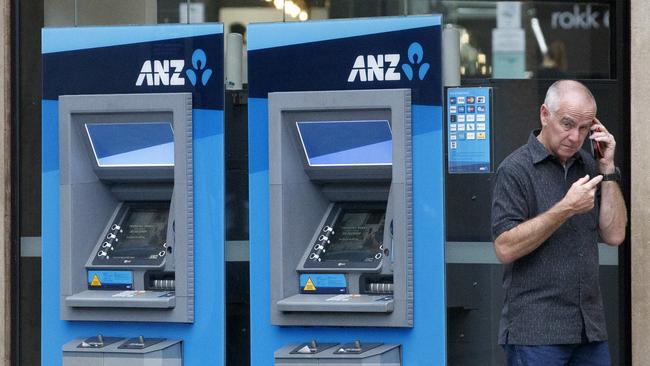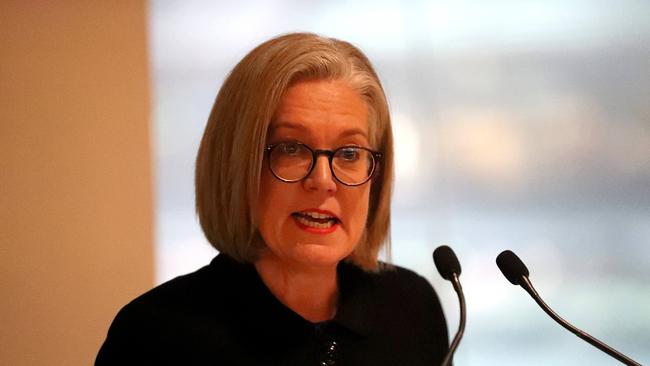ANZ to be fined after court finds it failed to inform market over its $2.5bn market raising shortfall
In a case brought against ANZ by ASIC, the Federal Court has ruled the bank failed to inform the market under its continuous disclosure obligations after its $2.5bn raising fell short.

ANZ will face a financial penalty for failing to inform the market of a $790m shortfall on a $2.5bn share placement in 2015.
In a judgment in the Federal Court on Friday, Justice Mark Moshinsky found ANZ breached its continuous disclosure obligations by not disclosing the shortfall in its massive share placement either on the night of August 6 or before the recommencement of trading in shares on August 7.
ANZ published a market release on August 7 at 7.30am announcing its $2.5bn market raise had been a success, when it actually faced a shortfall which resulted in the shares being acquired by underwriters DeutscheBank, Citi, and JP Morgan.
Justice Moshinsky said the shortfall was material information, and that ANZ’s position the shortfall was “generally available” information was wrong.
“Clearly, those senior representatives of the underwriters and (ANZ head of capital and structured funding John) Needham (all of whom were involved in the placement) believed that the market did not know about the shortfall,” Justice Moshinsky said.
Corporate regulator the Australian Securities and Investments Commission had submitted that this information had not been known to investors and had the potential to influence the trading in ANZ’s shares, which were changing hands for around $30.95 on the day of the placement.
Justice Moshinsky found ANZ’s then-treasurer Rick Moscati and Mr Needham were concerned the underwriters might move to quickly sell down their shares in ANZ, leading to a collapse in the share price, and the bankers were seeking assurances this would not happen.
“The reason why Mr Needham was concerned about the underwriters selling down quickly was that he believed that this would place downward pressure on the ANZ share price,” Justice Moshinsky said.

“ASIC’s contention is essentially that persons who commonly invest in securities would have held similar concerns and beliefs.”
ANZ launched the $2.5bn market raising in the wake of new banking regulations that forced all of Australia’s major lenders to rapidly boost their capital buffers.
The court had heard ANZ had initially been bullish in its expectations of the placement’s success, and executives were circulating a draft media release branding it as “significantly oversubscribed, attracting support from a wide range of institutional investors”.
Justice Moshinsky also rejected ANZ’s attempt to claim the alleged failure to disclose the market information was not material.
In his judgment, he found ANZ’s knowledge of the intentions of the underwriters to “do the right thing” was “so lacking in detail, that it does not constitute necessary contextual information for the purposes of assessing materiality”.
Justice Moshinsky ordered the case be listed for a penalty hearing at a later date.
ANZ, in a statement approved by its continuous disclosure committee, said it was reviewing the judgment, noting the maximum penalty for its failures would be limited to $1m.
ASIC said its win against ANZ “reaffirms the importance of the continuous disclosure rules to maintain market integrity”, and that the decision also confirmed the take-up of shares by underwriters “may be considered price sensitive information requiring market disclosure”.
ASIC deputy chair Karen Chester said the court decision “reaffirms ASIC’s longstanding expectation that an issuer of securities must disclose material shortfalls in capital raisings to the market”.
“Proper disclosure is fundamental to fair and efficient markets and price formation. Investors need to be fully informed about information that is likely to have a material impact on the price or value of a security,” she said.
The judgment comes in the wake of the Australian Competition and Consumer Commission‘s attempt to take on ANZ and the co-lead managers in a test of the regulator’s cartel case powers.
The ACCC The regulator had alleged ANZ, Citi, JP Morgan, and Deutsche Bank and six senior bankers had engaged in cartel conduct in their co-ordination of the shortfall.
However, the ACCC’s case fell apart in the courts, when the Commonwealth Director of Public Prosecutions pulled the matter in a move described by Justice Michael Wigney as a “complete shemozzle”.
ASIC’s case against ANZ was paused while the ACCC’s cartel case ran its course, and the matter sat idle for almost four years.
Shares in ANZ closed down 0.58 per cent to $25.71.







To join the conversation, please log in. Don't have an account? Register
Join the conversation, you are commenting as Logout